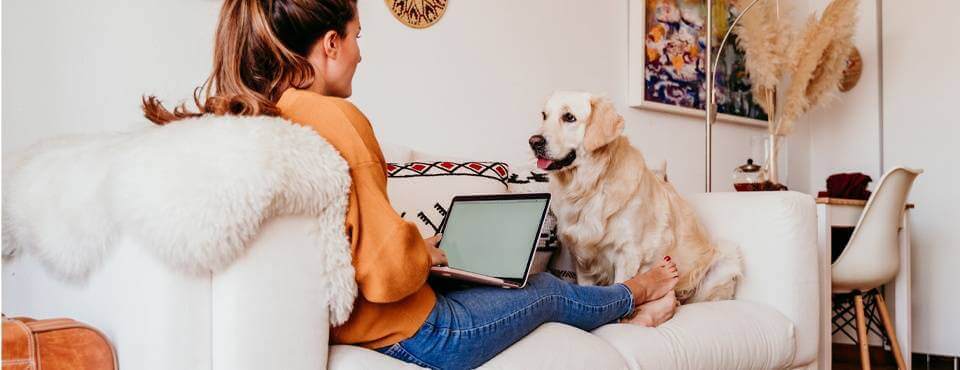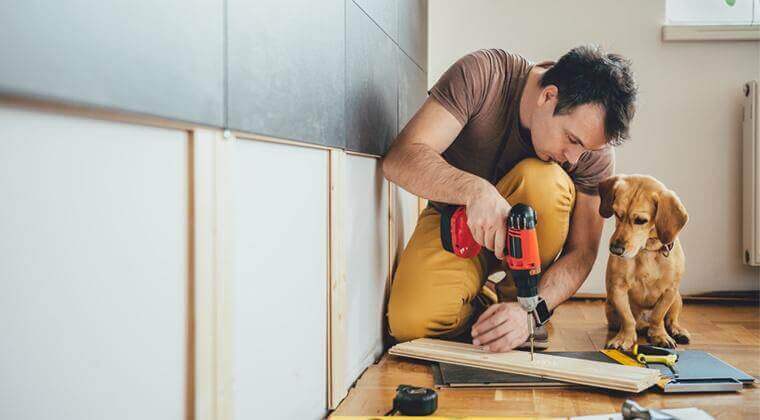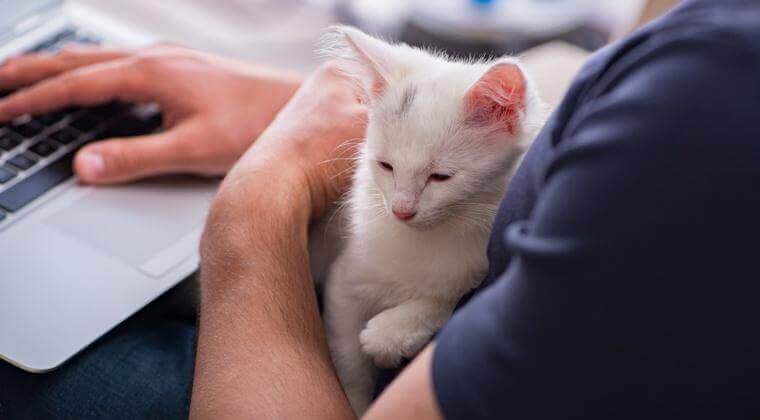Working at Home with Your New “Co-Workers” – Your Pets
DOGS
9 Apr, 2020
READ 5 minutes

The ongoing coronavirus pandemic is making it best for many people to work from home to prevent further spread of the virus. While we adjust to this “new normal,” there can often be a lot of juggling that goes along with it – from overseeing our kids’ remote schooling, to keeping up exercise regimens, and trying not to over-indulge on chocolate-chip cookies.
Another challenge to manage is how to work with their new “co-workers” – their pets!
Fortunately, there is no current evidence suggesting that the coronavirus can be transmitted from your pets to you.
However, it is always best to maintain good hygiene practices, and wash your hands frequently. Also, keep a plentiful stock of your pet’s food and have a designated caregiver for your pet in case you find yourself unable to provide care. In spite of these challenging times, we can still enjoy the extra time with our dogs and cats.

YOUR NEW CO-WORKER
Now that many of us are home full-time, our furry friends – whether a cat or dog, or both – are generally excited to have us around more often. You may have a cat that wants to be on your lap all day, or likes to walk across your computer keyboard, or wants to lay right on top of your phone. Or, your dog may be barking at you to play, nipping at your toes or trying to lick your face while you’re in the middle of a virtual meeting.
So how do you maintain that work-life balance? How can you get your work done and still give your pet what he or she needs right now? Here are a few tips that might make your pet happy and keep your productivity up to speed.
- Regular Activity. Engaging your pet in some kind of physical activity every few hours is a good way to use up some of their energy. For dogs, walking is not allowed under the South African rules but you can still find a spot to play a bit of “fetch” or play hide and seek around the house with toys and treats; and with cats, spend a little time with their favorite toy or playing a game of hide-and-seek. This will allow your excited pet to relax after some activity and will enable you to get some work done. Mental games can tire out your pet more easily than physical games so start teaching your dogs some new tricks.
- Physical Contact. Your pets are extremely sensitive, and they may sense that you are feeling anxious and that something is amiss. Increasing physical contact with belly-rubs and head-scratches will help ease their anxiety and excitement. You might also consider placing a favourite blanket or bed near your workspace to keep them content and minimize distraction to you while you work. This is also the time to do that regular grooming that you may not always get round to.
- Watch the Treats. It’s tempting to give our pets lots of treats during this time because it keeps them busy. This isn’t a great idea however, as it can disrupt their diet and cause other issues for them in the long run.
- Have a chat! You may find that now that you are home, you don’t have as many opportunities to talk to people. Talking to your pet is actually as good for them as it is for you!

MAKING THE MOST OF IT
For the foreseeable future, many of us are going to be home and spending a lot more time in close quarters with our beloved furry companions. Even in these stressful times, pet owners find a great deal of emotional relief in spending so much time with their beloved pets.
Here are some facts to keep you feeling positive about being home with your four-legged friends:
- Over half of pet owners said they feel less anxious because they have their pet with them.
- Most people have said they feel happier working from home because they have the company of their pet.
- The majority of pet owners said working from home helps them get even more exercise by walking or playing with their pet.
- Almost all pet owners said spending time with their pets helps them alleviate the stress they feel because of the current global situation.

A FEW OTHER THINGS TO REMEMBER
While businesses are closing down to comply with social distancing ordinances, many veterinary practices are still open, and are considered “essential.” Many of these offices also offer phone consultations and curbside services so if you feel that your pet needs to see your vet for any reason, don’t hesitate to call. There may also be a referral emergency number that you can call for urgent questions. You should do your best to maintain preventative health care measures for your pet such as regular deworming and tick and flea protection. Your vet will be more than happy to find a workable solution in getting these products to you.
Most importantly, please remember that you are not alone. You should enjoy the comfort your pet brings you during this time and know that there is always a professional you can reach out to if you need help – for your pet or for yourself.
RECOMMENDED








